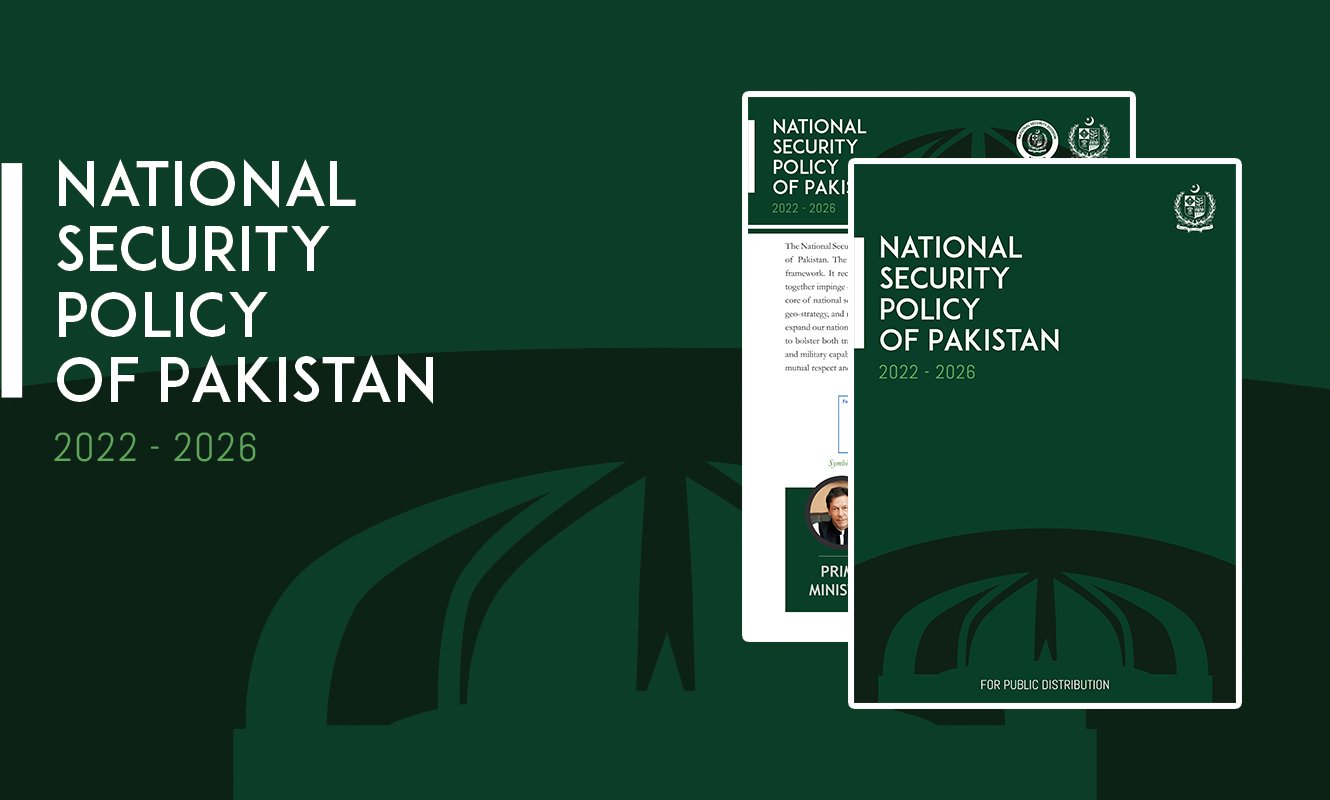A nation without clearly defined direction according to its national values will surely face existential threats in the contemporary world. Pakistan, for the first time in its history, has been able to chart a course that was first decided, owned and willingly followed by its people under the National Action Plan of 2014.The current National Security Policy of Pakistan (NSP) 2022-2026 can be termed as National Action Plan Plus for three main reasons: First, it is a consensus document on which both civil and military leadership agree. Also, the focus groups conducted by the National Security Division in different public and private sector universities and with civil society makes it a comprehensive policy document. Second, this policy has its own implementation strategy/ mechanism that was missing in all previous documents except National Action Plan. Third, the policy by suggesting a framework for national cohesion, economic security and human security has a whole-of-society approach, and if implemented in its true spirit can change the fate of Pakistan.
Comparatively, this policy is different from the National Action Plan as that was more security- oriented. However, this policy places geo-economics at its core rather than geopolitics. Also because of the evolving nature of non-traditional security threats and changing global contemporary security environment, it is a dire need to consider such threats on priority just like traditional security threats.
The NSP encompasses following important areas vis-à-vis traditional security, economic security and human security, i.e. a comprehensive stratagem to establish a sustainable institutional setup to strengthen the very basis of the state itself which will further strengthen socioeconomic conditions and physical security of the masses in general and the economy in particular. The geo-economic setup under the policy is intended towards projects which are more concentrated on regional connectivity and, thus, seems to be more pragmatic in terms of economic stability and development.
Historically, we have witnessed many policies fail only because there was no implementation mechanism, or a confidential mechanism was placed. In such a scenario, overcoming cross-cutting challenges in different domains and creating synergy and cohesion among various government ministries and departments will be tough. Similarly, because of confidentiality of the NSP’s implementation, there will be no monitoring and evaluation phase and the improvements required in the policy may be hard to incorporate. This will raise questions about its effectiveness and success.
The shift from geopolitics to geo-economics is much needed but ignoring the former will not be in the interest of Pakistan. The fluid situation in Afghanistan and US’ changing policies towards India and the region should be considered in this regard. Indian involvement in Afghanistan is a geostrategic challenge that Pakistan has to face and deal with for its security. Similarly, the US policies in Asia-Pacific and its tilt towards India is concerning. US’ unending reservations about Chinese projects such as China-Pakistan Economic Corridor shows that for Pakistan both geo-economics and geostrategic challenges are of immense importance and a systematic pursuance of both the strategies is the need of the hour.
The 2022-26 NSP is an attempt to recognise and prepare for emerging trends, technological revolution and to take advantage of its geo-economically pivotal location to function as a trade and connectivity hub for ensuring economic security. Economic gains will transform the internal security landscape of Pakistan by contributing to human security and welfare of the people. This will also contribute towards peace and prosperity in the region by increasing economic interdependence. Embracing a comprehensive vision stated in the policy, will lead us to a more secure and prosperous Pakistan where all citizens will be able to live with security and dignity.
Asad Ullah Khan is a Senior Researcher at Centre for Aerospace & Security Studies (CASS), Islamabad, Pakistan. He can be reached at [email protected]
Image Source: Hussani, Muhammad Bakir Raza. 2022. ”Read Pakistan’s first ever National Security Policy here.” The Nation. January, 15.





